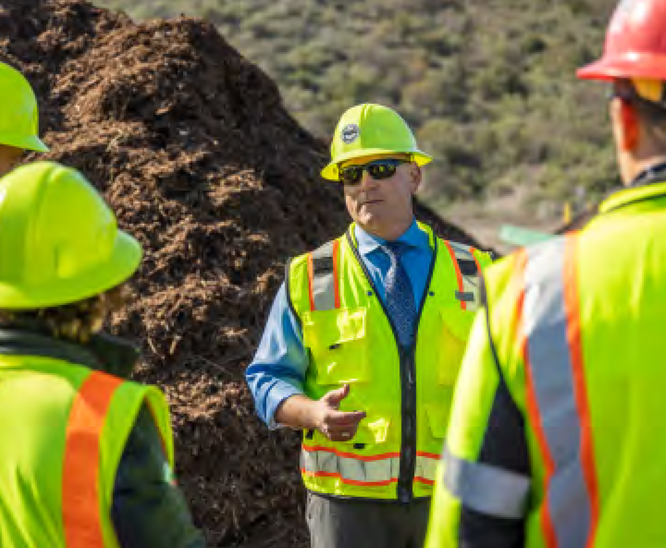Director’s
Message



Welcome to the 2021 OCWR Annual Report.
You may know that I grew up in a family business that provided waste and recycling services. This was back during a time when things like child labor laws did not apply to family businesses, and when the industry was far less regulated than it is now. The service goal was simple: Make it disappear.
Not only is making it disappear far more challenging now, it is no longer the goal. Now, we must find a beneficial reuse for material that was once considered waste. The industry is transforming under monumental legislative mandates. Simply, things are different now. That’s the theme of our 2021 Annual Report, because things truly are different in virtually every aspect of waste and recycling, including mandated recovery of edible food and productive use of organic materials that until now have been considered to be waste.
From my perspective, this is the most exciting time ever in the waste and recycling industry. I’m sure you might see it a little differently. And you don’t have to reach my level of excitement. I’d be surprised if you did. But the County and its many jurisdictions must collaborate and be on the same page as we meet the demands of this industry-transforming legislation.
Our shared challenge right now is to educate the public and commercial sector that things are different now.
What we all – businesses, residents, jurisdictions and haulers – have been doing for decades is not sustainable for the future. That’s the premise driving OCWR forward.
Currently, we are permitted to accept waste at our landfills through the year 2102. That date may be extended, based on the pace at which tonnage is received. But OCWR isn't here just to fill up landfills and close.
Our pivot to a resource recovery model is happening. At all three sites, we are recovering mattresses, appliances and scrap metal for recycling. We are composting at two sites; anticipate the third to open in 2022. We'll move from our start-up windrow composting of residential greenwaste to covered aerated static piles and then to integrating multiple types of feedstock. Then on to source separated organics facilities co-located at the landfills, and ahead to anerobic digestion.
A big part of our shared challenge right now is to educate the public and commercial sector that things are different now, and the minor changes in their waste and recycling behaviors make a big impact. As much as we all have done to this point, the real pioneering lies ahead. I hope you will join us in this effort as we continue our pivot to resource recovery and start doing things a little differently than before.
Thank you and please enjoy OCWR’s 2021 Annual Report.
Our shared challenge right now is to educate the public and commercial sector that things are different now.
